Opening Lines:
I’ve written before about the importance of opening lines and 12 options for opening a story or novel. Which of these would make you read the next line? If you had to choose JUST BY READING THE OPENING LINES, which book would you buy?
Opening Lines
A. Barry Fairbrother did not want to go out to dinner.
B. I am a lawyer and I am in prison.
C. They took Mother away today
D. When I think of my wife, I always think of her head.
E. Some years in Portland, Oregon, winter is a bully, spitting sleet and spewing snow in fits and starts as it violently wrestles days from spring, claiming some archaic right to remain king of the seasons—ultimately the vain attempt of another pretender.
F. “I don’t know why we gotta sit here baking in your car in the middle of he day, in the middle of the summer, in the middle of this crummy neighborhood,” Lulu said.
G. The light of a half-moon shimmered off the restless sea like a streak of flaming mercury.
H. The rear door to St. Anthony’s church had been left open.
I. The four dead men were lined up on the living room floor of the safe house
J. He had the look of a man who was afraid that tonight would be his last on earth.
Did you guess that these are the opening lines for titles on the Best Selling Books for December 03, 2012? Does that change your evaluation of them? Match these opening lines with these top 10 bestselling adult novels.
Bestselling Titles, December 2012
- Notorious Nineteen by Janet Evanovich
- Agenda 21 by Glenn Beck
- The Forgotten by David Baldacci
- Merry Christmas, Alex Cross by James Patterson
- The Racketeer by John Grisham
- The Last Man by Vince Flynn
- The Casual Vacancy by J.K. Rowling
- Gone Girl by Gillian Flynn
- Cross Roads by Wm Paul Young
- Poseidon’s Arrow by Clive Cussler
What do you notice about these opening lines? Leave a comment: which book would you buy, if you only read the opening lines?
Answers: 1-F, 2-C, 3-J, 4-H, 5-B, 6-I, 7-A, 8-D, 9-E , 10-G

Your novel is progressing nicely and you finish a chapter. But then, the next chapter is calling and you procrastinate, you read blogs, you do laundry, you AVOID.
How can you get started on that next chapter?
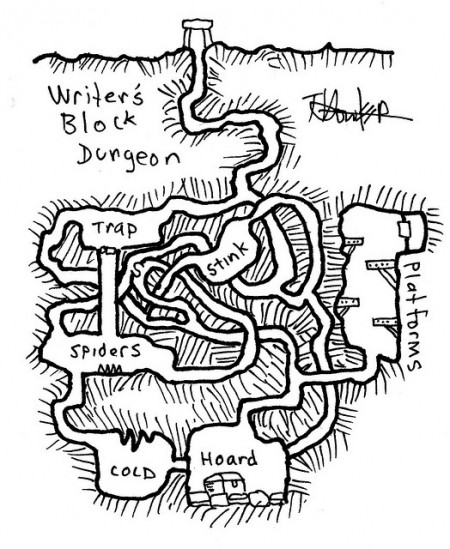 Sensory details. I like to imagine where my character is in the next chapter, then close my eyes, put myself there and try to imagine all the things the character might see, hear, touch, taste or smell. Then, I push hard to find an interesting detail and I start writing there. The danger is that you might start with too much description. That’s OK, you can take care of that during revision. The goal here is to get started.
Sensory details. I like to imagine where my character is in the next chapter, then close my eyes, put myself there and try to imagine all the things the character might see, hear, touch, taste or smell. Then, I push hard to find an interesting detail and I start writing there. The danger is that you might start with too much description. That’s OK, you can take care of that during revision. The goal here is to get started.
Action. Alternately, starting with a great verb can help jumpstart the story. Think beyond the usual: walk, run, turn head, whirl. Instead, go for something distinctive: salute, pirouette, regurgitate. (Please, avoid those pesky adverbs, which add so little. Not walked lazily. But strolled.) Get your character in motion and keep him/her in motion for a page or so, and you’ll figure out where to go next.
Dialogue. One of my favorite openings to a novel is Tom Sawyer, which opens with his aunt calling: “Tom!”
When in doubt, begin a new chapter with a bit of dialogue. Keep it going for about ten exchanges and then move on.
Dead End Ways to Start a Chapter
On the other hand, there are some dead-end ways to start chapters:
Waking up. Rarely does it work to have a character start a chapter in bed, then wake up. Boring. (OK. Prove me wrong! As long as it gets you going on a new chapter.)
Backstory. Long explanations of a character’s history rarely excite the reader either. We don’t need to know about Mary’s uncle’s horse and how it escaped and caused Mary to jump into a ditch where she broke her leg. Instead, show-don’t-tell how she is dealing with that broken leg. Past action is boring; current action is exciting.
Dull vocabulary. If there’s ever a place for brilliance of voice, phrasing, interesting vocabulary, it’s the opening of a chapter. Here is where you want to catch a reader’s attention. No, you don’t want it to be so overblown that it is out of character with the rest of the story; however, you do want it to catch a reader. And, the beauty is that if you do overwrite, it’s just a first draft.
These are ideas to help you get something—anything—on paper. There’s plenty of time for revision. But that first draft has to get written, one chapter at a time. Stop procrastinating. Write!


Happy Holidays, Writers!
Writing during the Christmas holidays can be difficult. There’s too much to do, too much living to do!
Here are some simple low-stress projects to keep you going. Just have fun with these!
Show-Don’t-Tell with Sensory
Go sit at a mall, beside a seasonal skating rink, at a holiday concert. Notice the sensory details of the setting, and write a short piece that incorporates your best Show-Don’t-Tell skills.
Dialogue Is NOT the Same as Real Talk
At that office party, neighborhood cook-out, or local basketball game, eavesdrop and focus on the authentic sounds of dialogue. If you can do it without looking creepy, take a notepad with you and jot down the exact words that people are saying. Transcribe it later and turn it into a short scene by studying how to change real speech into dialogue that matters. How can you use dialogue to imply information, emotions and relationships?
Play with Opening Lines
Print out this list of excellent opening lines. Over a several day period, take your Work-in-Progress and mimic each of the 12 types of opening lines. Try to write at least a dozen opening lines, but better, write 100 different opening lines for your story.
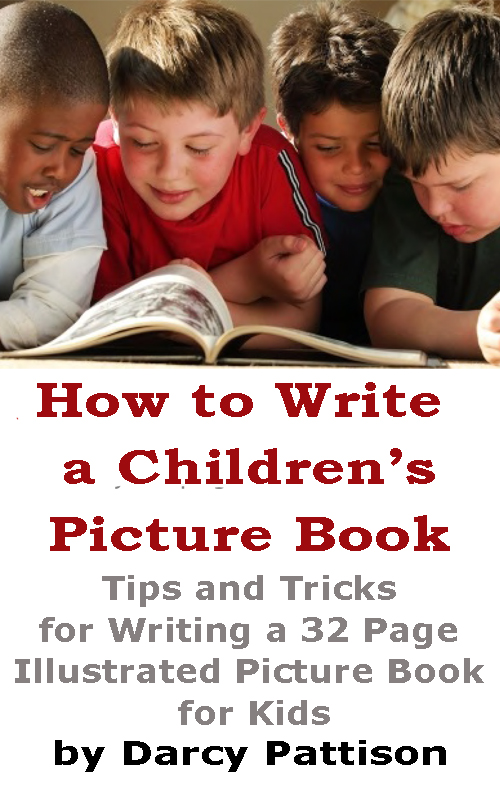 | |
NEW EBOOK
Available on
|
For more info, see
writeapicturebook.com

 The first page is your chance to make a strong impression with your teen reader! Don’t blow it! New York Times bestselling young adult author Rachel Cohn spoke at the 2011 Southern California SCBWI Writer’s Day event, and shared her list of the top five things you need on page one!
The first page is your chance to make a strong impression with your teen reader! Don’t blow it! New York Times bestselling young adult author Rachel Cohn spoke at the 2011 Southern California SCBWI Writer’s Day event, and shared her list of the top five things you need on page one!
The Five Things To Look For In Your Opening Page:
1) Voice
- This is often said to be indescribable. “I’ll know it when I read it.” Is what we hear over and over.
- Voice is the way you speak on paper.
- Write as if you are talking to a friend.
- Write honestly.
- Don’t write logically. Follow the emotion.
- Imagine a teen in your living room and you are telling them your story. How would you tell it to keep them engaged?
- Read other books! Hear other author’s voices.
- Some of Cohn’s favorite author voices are: Libba Bray, David Levithan, and Patricia McCormick.
2) Tone
- This is similar to tone of voice.
- It is not what is being said but how it is being said.
- This is related to the adjectives you use.
3) World
- You need to show the world your characters find themselves in.
- This doesn’t have to be epic world building like Lord of the Rings or high fantasy or dystopian.
- Worlds are smaller. Think about the world created by author Sarah Dessen as an example.
- Communicate how your world works to your reader.
- Think about how your mundane and ordinary world can be seen as extraordinary to a teen.
- Your world needs to feel like paradise before you make it feel like a prison.
4) The Plot
- Outlining is good! It’s really helpful.
- Plot is what happens in the story and the order in which it happens.
5) Conflict
- What is in your character’s way?
- What does your character want?
- Do the situations your character gets into get in the way of what they want?
Rachel shared the first page of three young adult novels which (in her opinion) contain all five elements – Voice, Tone, World, Plot, and Conflict. Pick up these books at your library and see if you agree!
 Example 1: The Hunger Games by Susan Collins
Example 1: The Hunger Games by Susan Collins
- Mention of the Reaping = Tone and Plot
- Story with the Cat = Illustrates (show not tell) the bleakness of the world.
- Establishes the protagonist is a hunter who provides for the family and is loyal.
- The line about love immediately shows tone and conflict.
 Example 2: Bumped by Megan McCafferty
Example 2: Bumped by Megan McCafferty
- We get the voice from the first line.
- We get the tone from the use of slang and the sense of darkness and mystery. Yet at the same time it’s funny.
- The prosthetic belly tells us information about the world.
- Immediate Conflict = She must get pregnant.
2 Comments on Five Things to Make Your First Page Shine!, last added: 5/26/2011













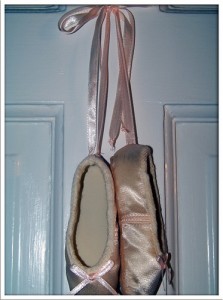
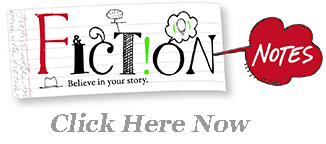
 COMING AUGUST 15:. The Book Trailer Manual. Click to read about it.
COMING AUGUST 15:. The Book Trailer Manual. Click to read about it.
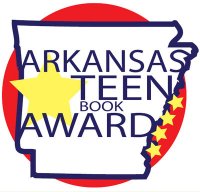


This is all very helpful information. I read the examples she highlighted. Perhaps her tastes are different than mine, though I liked the Hunger Games first page.
I love this advice: “Your world needs to feel like paradise before you make it feel like a prison.”
Yes!